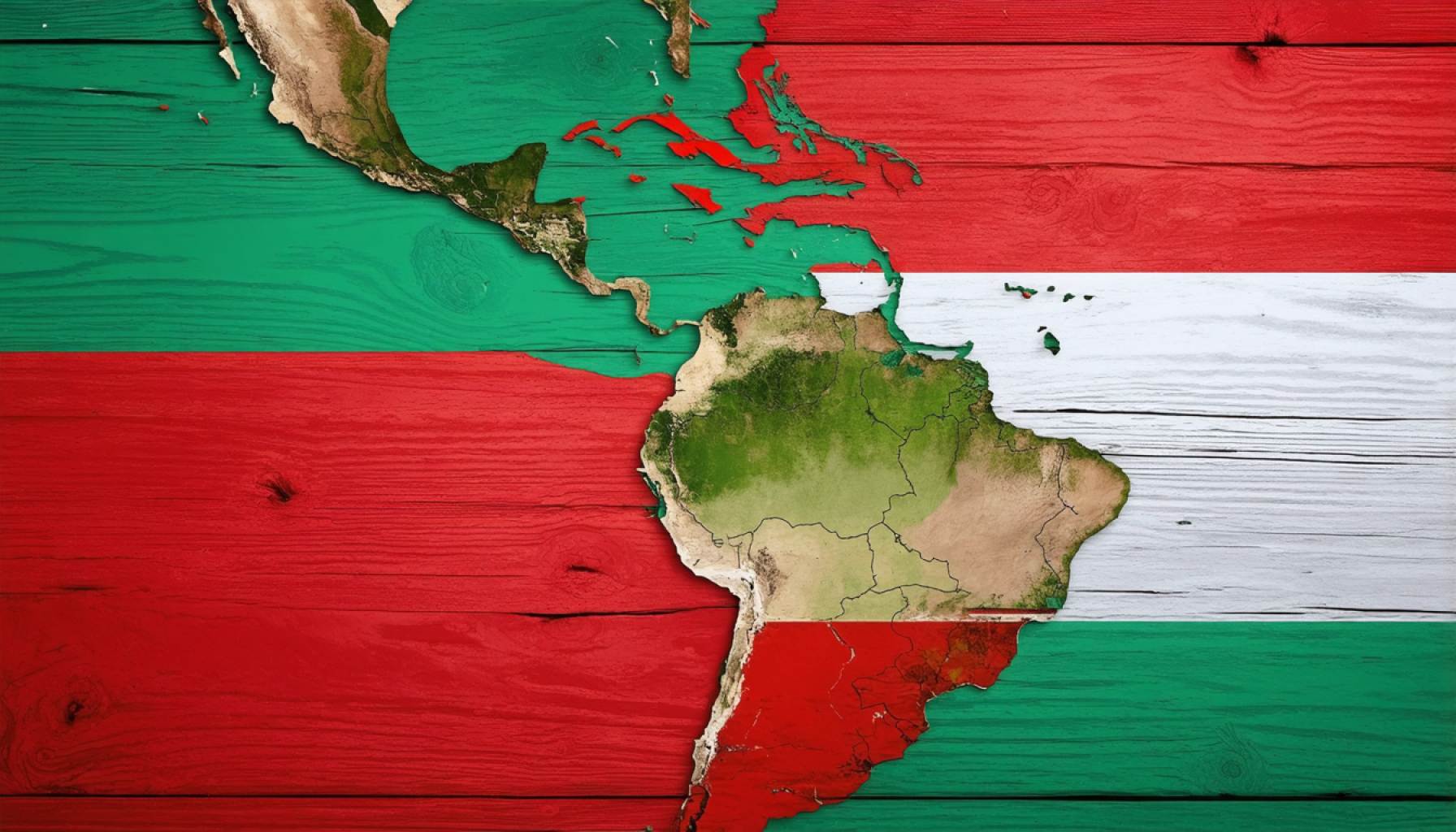- Ceuta has become a focal point for intellectual exploration of the relationship between Iberoamérica and Africa.
- The Uned Center hosts eminent academics to discuss bilateral and multiregional cooperation between these regions.
- Scholars are shifting focus from traditional Northern partners to new connections between Africa and Iberoamérica.
- Carlos Echeverría, Francisco Oda, and Juan Carlos Moreno initiated discourse on current geopolitical challenges.
- José Alberto Azeredo Lopes will discuss “gastrodiplomacy” as a means to bridge continental divides.
- A panel led by Patricia Núñez Cortés and Cástor Díaz will explore future cooperation opportunities between the regions.
- The symposium highlights innovative diplomacy and shared aspirations as pivotal to redefining global narratives.
The picturesque city of Ceuta has transformed into a hub of intellectual fervor, a beacon spotlighting the underexplored alliance between Iberoamérica and Africa. The Uned Center in Ceuta has gathered an assembly of eminent academics and specialists to unravel the tapestry of this fascinating relationship, which often slips under the radar, overshadowed by predominant North-South discourse.
Amidst the refreshing sea breeze, scholars dissect the burgeoning channels of bilateral and multiregional cooperation sprouting between these distant lands. As the world pivots, these nations extend their curiosities beyond their traditional Northern neighbors—Europe for Africa and the United States for Iberoamérica. A dynamic exchange is blossoming.
Yesterday, Carlos Echeverría, celebrated president of the Observatory of Ceuta and Melilla, initiated the symposium with a compelling analysis of current geopolitical challenges. Alongside him were Francisco Oda, representing the Instituto Cervantes of Tetuán, and Juan Carlos Moreno, steering the Fundación Yuste’s diplomatic efforts, who augmented the discourse.
Today promises another feast for the intellect. José Alberto Azeredo Lopes, a former Portuguese Minister of Defense, will eloquently argue that “gastrodiplomacy”—the art of culinary connections—could serve as a bridge between continents. A discussion panel, steered by Patricia Núñez Cortés and Cástor Díaz, seeks to probe the potential vistas of cooperation blooming on this vibrant horizon.
As ideas weave together like the intricate patterns of a tapestry, the conversation invites us to envision a world where continents connect over shared aspirations and innovative diplomacy, redefining a global narrative ripe with possibility.
The Untapped Alliance: How Ceuta is Bridging Iberoamérica and Africa
How Ceuta is Becoming a Nexus Between Iberoamérica and Africa
Key Observations from the Symposium
In recent years, Ceuta, a picturesque Spanish enclave bordering Morocco, has evolved into a hub for intellectual and diplomatic synergy, particularly between Iberoamérica and Africa. This is largely due to initiatives like the recent symposium hosted by the Uned Center, where experts from various fields gathered to explore the possibilities for cooperation between these geographically distant, yet intricately connected regions.
Real-World Use Cases
1. Cultural Exchange and Tourism:
– Ceuta’s strategic location makes it an ideal launchpad for cultural exchange programs. Encouraging bilateral tourism initiatives can strengthen economic ties and enhance cultural understanding. Countries in both regions can develop collaborative festivals celebrating shared histories and diverse cultures.
2. Educational Partnerships:
– Universities in Iberoamérica and Africa could initiate student exchange programs and joint research initiatives, focusing on areas such as sustainable development, technology, and history. Leveraging the expertise from institutions like the Instituto Cervantes and Fundación Yuste can facilitate these initiatives.
3. Gastrodiplomacy:
– As highlighted by José Alberto Azeredo Lopes, food can be a powerful tool for diplomacy. Establishing culinary festivals and food exchange programs can foster mutual respect and understanding, capitalizing on the rich culinary traditions of both regions.
Industry Trends and Market Forecasts
With geopolitical dynamics shifting, there’s growing interest in South-South cooperation as a complement to traditional North-South partnerships. The potential for trade and economic collaboration between Iberoamérica and Africa is expanding, driven by:
1. Economic Complementarity:
– Africa’s need for technology and infrastructure development aligns with Iberoamérica’s expertise in these sectors. Conversely, Africa’s rich natural resources can benefit Iberoamerican economies, especially in sectors like mining and agriculture.
2. Digital Transformation:
– Both regions are witnessing rapid digital transformation. Collaborative tech entrepreneurship can tap into this trend, fostering innovation-driven growth.
According to a report by the World Trade Organization, South-South trade could account for over 40% of global trade by 2030, highlighting the importance of alliances like the one between Iberoamérica and Africa.
Challenges and Controversies
1. Language Barriers:
– While Spanish and Portuguese are widely spoken in Iberoamérica, language diversity in Africa can create communication challenges. Investing in language education and translation services can mitigate these barriers.
2. Geopolitical Tensions:
– Existing tensions and historical legacies can complicate diplomatic efforts. Acknowledging and addressing these issues is crucial for building trust and collaboration.
Actionable Recommendations
1. Start a Cultural Exchange:
– For local communities and organizations, initiating a small-scale cultural exchange program can be the first step towards broader cooperation.
2. Engage in Regional Forums:
– Participating in forums and conferences focusing on South-South cooperation can provide valuable insights and networking opportunities.
3. Leverage Technology:
– Use digital platforms to connect with counterparts across the regions, sharing knowledge and fostering innovation.
For more information and updates on such initiatives, you can visit the official sites of the involved organizations:
– UNED
– Instituto Cervantes
– Fundación Yuste
By encouraging dynamic exchanges and recognizing shared aspirations, Ceuta is positioned to not only strengthen the ties between Iberoamérica and Africa but also redefine global diplomatic strategies.
